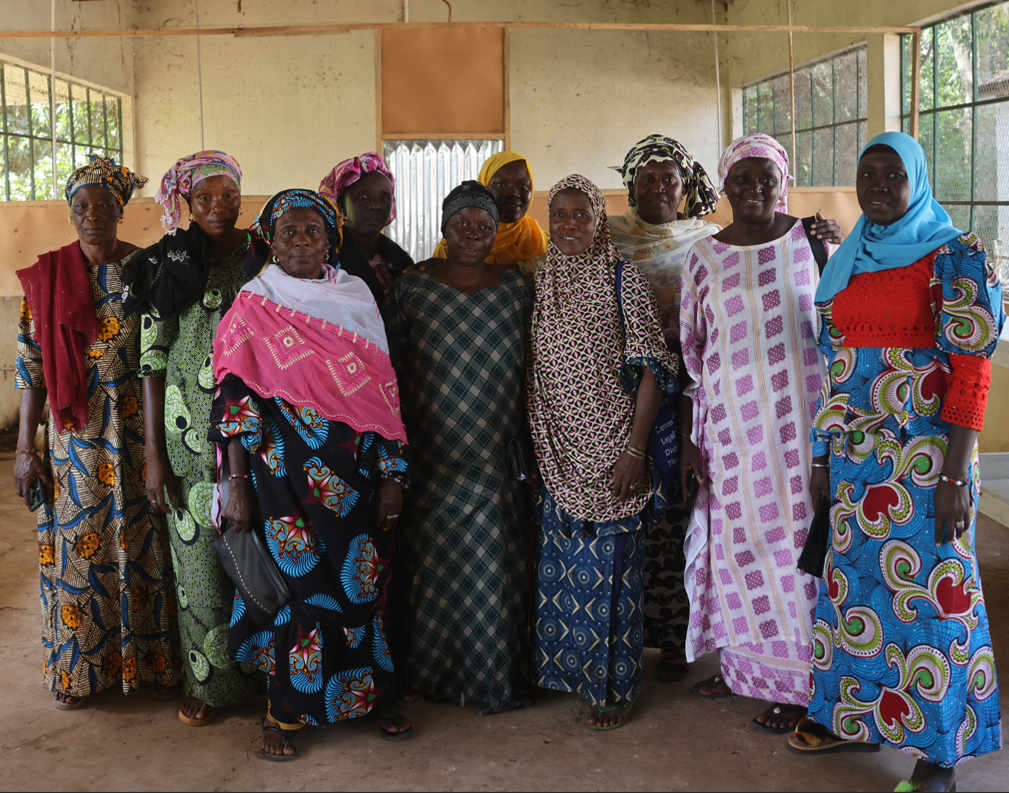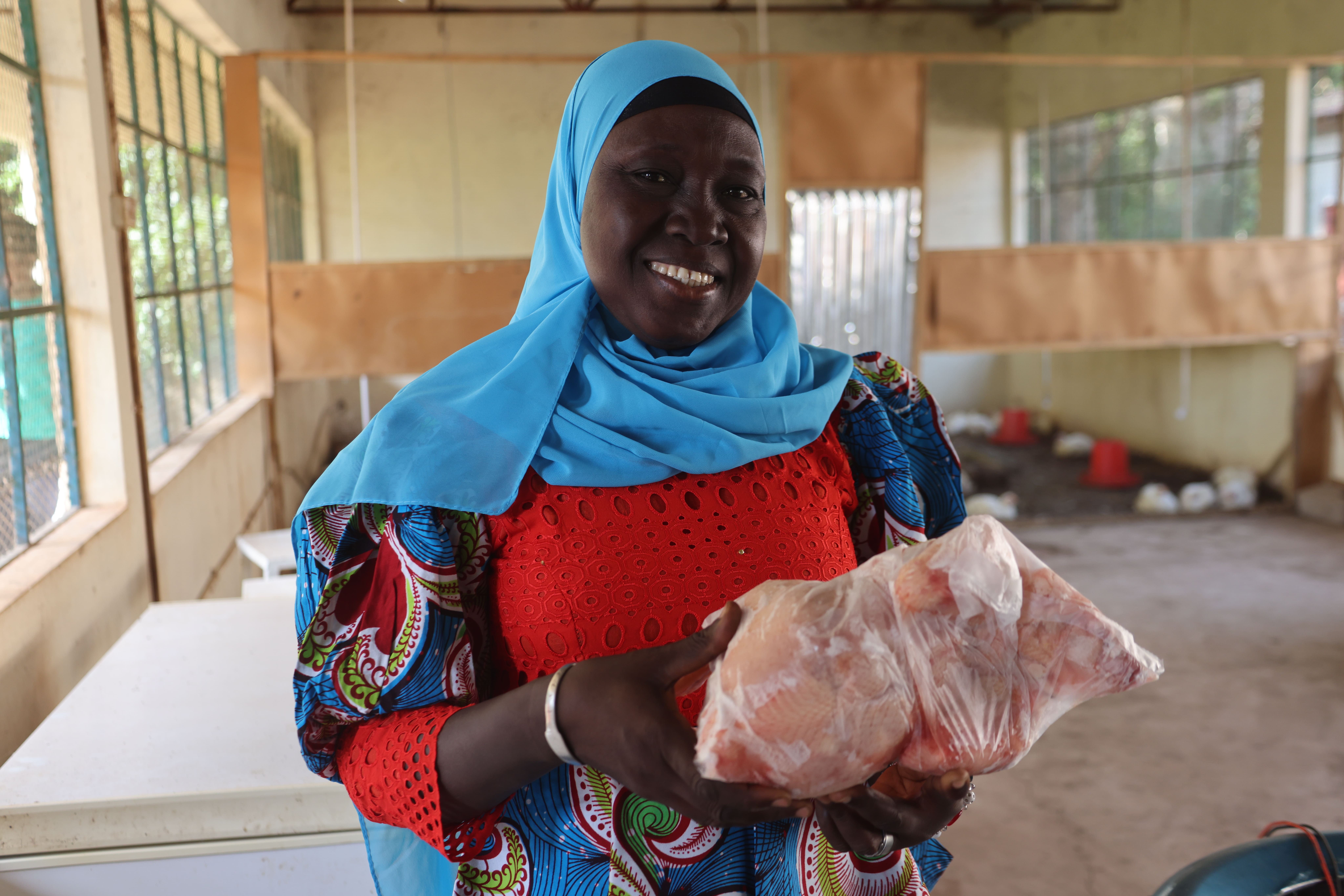News
CORAF is an important organization working to improve food and nutrition security in West Africa. CORAF's recent initiatives are a promising sign of its determination to meet the challenges facing West Africa.
The GIRAV project empowers Gambian women: The inspiring story of the "Mother's Club" in The Gambia

Published on : 16/12/2024
In the heart of rural Gambia, the Club des Mères de Basse doesn't just raise chickens: it transforms lives. Supported by the World Bank-funded Gambia Inclusive and Resilient Agricultural Value Chain Development (GIRAV) project, these women are building a brighter, more sustainable future for themselves and their families.
The Club des Mères, located near a school with 1,800 students, is much more than an agricultural cooperative. It's a powerful network of mothers committed to providing a better life for their children. Thanks to a poultry center located within the school, these mothers can work while looking after their children's education. The center is equipped with a working borehole and solar panels, guaranteeing constant resources for poultry farming and gardening nearby. The club also sells local chickens, supporting the community while reducing the need for poultry imports.
Mariama TRAORÉ, financial controller and member of the Mothers' Club, expresses her pride in their achievements: "We started with just 300 chickens, and today we have 600. The project provided us with three freezers, which enables us to sell not only wholesale, but also retail, to meet the needs of the community."

Every month, the club distributes hygiene kits to young girls and rewards the best students, helping to keep girls in school. The Mothers' Club also plays an essential social role. Members act as intermediaries between parents and young girls, working actively to prevent forced and early marriages - a problem still very much present for many young girls in Gambia. By raising awareness and promoting education, the club gives young girls the chance to pursue their dreams and free themselves from the compulsion of early marriage. They also teach children how to raise poultry, giving them practical lessons in life skills and agriculture. What's more, the money they generate and the knowledge they acquire also enable them to improve their family's income and their household's nutritional situation.
Dr Aifa Fatima NDOYE, Team Leader at the World Bank, underlines the importance of this initiative: "Projects like the Mothers' Club not only strengthen local food production, but also community ties and offer women the opportunity to become financially independent. The social impact is invaluable, from preventing forced marriages to keeping girls in school."
Thanks to the GIRAV project, financed by the World Bank, these women received 1 million Dalasi (around 14,000 USD), with a contribution of 300,000 Dalasi (4000USD) from the club itself, to support their poultry business. This financial support has enabled them to construct a building, purchase equipment, meet quality standards and increase their marketing capabilities.
By taking an active part in local clean-up initiatives alongside Club des Pères, they also help to maintain a cleaner, healthier environment for all.
According to Ms Safouratou ADARIPARÉ, Director of Management Services at CORAF, "The GIRAV project illustrates how agriculture can be a vector for social change. By empowering these mothers, we are also investing in the children of the community and, ultimately, in the future of the nation."
GIRAV project initiatives play a crucial role in agricultural development in The Gambia, not only by increasing agricultural productivity and supporting small-scale producers, but also by enhancing communities and promoting social change. With the Mothers' Club as an inspiring example, this project continues to empower women, contribute to food security and foster social development, contributing to a resilient agricultural future for The Gambia.
Thanks to this initiative, the Club des Mamans benefits from appropriate infrastructure and training, enabling them to effectively manage their poultry business while supporting their children's education. This collaboration is part of an integrated approach to improving food and nutritional security and offering women stable livelihoods, while empowering them to play a central role in the community.
Other news
View allTowards a strengthening of CORAF's actions in...
A delegation from CORAF, led by its Chairman of the Board, Dr Kalifa TRAORÉ, its Executive Director, Dr Moumini SAVADOGO, and its...
A strong plea for African women entrepreneurs...
Many women in West and Central Africa live in an unfavorable environment, with limited access to information,...
CORAF strengthens its partnerships in Burkina Faso...
As part of its mission to strengthen institutional and technical collaboration, a delegation from CORAF, led by its Director,...
Training today's and tomorrow's researchers:...
When AMABA Akéta Akpadji Rébecca completed her Master's degree in Plant Biology in Togo, she was faced with uncertainties about...